RAWLINGS – FOUNDER OF THE 4TH REPUBLIC
President Rawlings, in 1992, established the 4th Republic of Ghana, the longest running in the history of this nation, which still endures. Following his constitutionally mandated two terms serving as the President of Ghana, he handed over the flagbearership of the NDC to Professor Mills and the leadership of the nation to President Kufuor in 2001.
Prior to the return to constitutional rule in 1992, Rawlings initiated and supervised a process of transition to constitutional rule as early as 1986 through the actualisation of the District Assembly concept as a primary grassroots democratic organ. Subsequently, the National Commission on Democracy sought opinions from Ghanaians on the best form of democratic governance to adopt. Eventually the former President was presented with a report that recommended an expansion of the District Assembly system into the Regional and National Assemblies where individuals would nominate themselves for elections.
President Rawlings has never shied away from stating that he is not a supporter of multiparty democracy because it tends to allow a minority to manipulate and rule the majority and brings about division. In spite of his strong reservations, he still accepted the integrity of the information from his team, to adopt the multiparty system of democratic governance and actually stood as a presidential candidate in both the 1992 and 1996 General Elections. Due to his faith in his team, and desire to prioritize the national development agenda, he chose not to exercise his veto as Head of State, despite his reservations about the multi-party system.
Former President Rawlings set an admirable record on the continent by willingly and smoothly handing over power in 2001 when his party lost the 2000 General Election. The continent is currently strewn with leaders who have entrenched their stay after their constitutionally obligated terms, amending the constitution, rigging elections or simply refusing to step down. Today the precedent established by President Rawlings has ensured that the 4th Republic has enjoyed four smooth political transitions.
NANA KONADU AND THE NDC – SACRIFICE AND BETRAYAL
The role, hard work, strategy and organisational talent that Nana Konadu applied to build and propel the NDC to countless victories can never be eroded. The various attempts to not just discount the central role she played, but to also deride her, is symptomatic of the myopic selfishness of characters within the NDC who cannot appreciate the fact that in so doing to pioneers of the Party like herself and others, you have no history to speak of.
To peddle falsehoods in the name of hearsay as a justification for the blatant lies in the book is unbecoming of an academician; albeit with the sole intention of creating the impression that Nana Konadu had a role to play in the so-called Rawlings versus Mills tale.
Nana Konadu played an integral role in the development of both the PNDC and the NDC, and the attempts by the author to denigrate her and nullify the key strategic and organisational role she played is yet another disappointment of the book.
When the ‘Swedru Declaration’ was made (prior to the 2000 elections), Nana Konadu Agyeman-Rawlings had in fact been out of Ghana for several months working on a women’s health project for the World Health Organisation (WHO). A fact the author could quite easily have verified were he or any of his proof-readers inclined to do so. She was informed about the Declaration while she was abroad. Surely, logic would indicate, that had she any intention to contest that election, she would have been in the country campaigning, or at the very least have set in motion her campaign machinery with which to achieve her Presidential objectives. At no point did she indicate to President Rawlings or members of the Party, that she had any intention or inclination to be the flagbearer of the Party. On her return to the country, she rapidly rolled out her campaign strategy and machinery in support of Professor Mills. Yet another fact that can be easily and publicly verified.
April 2000 Congress
In writing on the Extraordinary Congress of April 2000, the author again alleges that Nana Konadu Agyeman-Rawlings was unhappy with the proliferation of “Mills for President” T-shirts and confronted several people who wore the T-shirts including he (Kwamena) and Kofi Totobi-Quakyi. It defies logic for an academician turned author to include this falsehood in his work when President and Mrs. Rawlings had publicly thrown their weight behind Vice-President Mills for the Presidency and indeed after the Congress, they campaigned extensively and comprehensively for the candidate.
Further, to insinuate that Mrs. Rawlings was averse to the wearing of “Mills for President” T-shirts is absurd given that Nana Konadu Agyeman-Rawlings and her women’s group were actually responsible for printing thousands of “Mills for President” paraphernalia to her personal debt.
The foregoing is merely a crystallisation of decades of a smear campaign led by Ahwoi to shift the blame for all the many failures of the Party onto Nana Konadu Agyeman-Rawlings. This is indicative of the consistent lack of reflection and the refusal to take responsibility for mistakes, that have led the Party to the point at which it finds itself.
Afiadenyigba, Ada Incident
In 2000, Vice President Mills had been confirmed as the candidate for the NDC. Nana Konadu, as part of her political campaign for the Party, created a programme for the Greater Accra Region. One of the events was the opening of a school in Afiadenyigba, Ada which she invited Mrs Mills to commission, to officially outdoor her to the Dangbe community. Although protocol arranged for the First Lady and Vice-President’s wife to travel together, Mrs Mills decided to take the lead on the journey.
One of the etiquettes that J.J. Rawlings insisted upon at public events, which then became custom, was not to drive into durbar grounds, thereby whipping up dust onto the chiefs, royalty and the community. It therefore became an unspoken rule since the 1980s that government officials arriving at any function were to alight from their vehicles at the periphery of the durbar grounds and walk onto the grounds.
When Mrs. Mills arrived at the durbar grounds at Afiadenyegba, her convoy in an attempt to drive onto the sandy durbar grounds was frantically flagged down and stopped by a police officer assigned to the function. Mrs. Mills in a fury demanded the reason for this. The police officer proceeded to explain the rationale for stopping her car which unfortunately did little to diffuse the situation and she said she was leaving. The 31st DWM ladies that organised the event frantically went on their knees to apologise to the Vice-President’s wife and begged her to stay. This was in full view of the chiefs and people gathered.
Nana Konadu eventually arrived at Afiadenyegba to the sight of some elderly organisers on their knees, pleading, with Mrs. Mills who was clearly upset. Nana Konadu enquired as to what had transpired and was briefed by her organisers. In an attempt to de-escalate the situation, Nana Konadu apologised to Mrs Mills on their behalves and explained that all manner of hiccups occurred at public events but that should not bother her. When Nana Konadu proceeded to greet the chiefs and people present, she was met by shocked chiefs, queen-mothers and their subjects, all of whom could have been located to corroborate the incident, was the author so inclined.
In the days that followed, it came to light that the police officer in question and his colleagues present were transferred outside of Greater Accra Region. One of the officers wrote a report to the then IGP Peter Nanfuri who also reported the entire matter to President Rawlings. Shocked and upset at the entire incident, President Rawlings asked Vice-President Mills why he would issue such instructions against the officers when they were just doing their jobs. The transfers were subsequently overturned.
Nana Konadu was still on her regional campaigns for the NDC and Vice President Mills, unaware of the demotions, transfers and subsequent discussions taking place in Accra. Whilst in Cape Coast, the then Regional Minister Jehu-Appiah and two other persons met with her to enquire as to her knowledge of the incident. She narrated it and they expressed surprise at such a trivial incident taking this turn.
Kwamena Ahwoi, John Kwadjo and E.T Mensah, all appointees at the time, authored a report of this incident which lays all the facts bare. This is a matter of public record and were the author so inclined, he would have consulted it as he did with other documents in his possession.




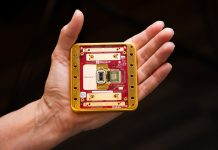








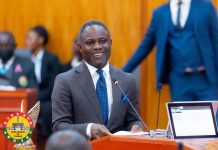

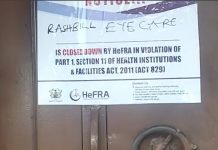
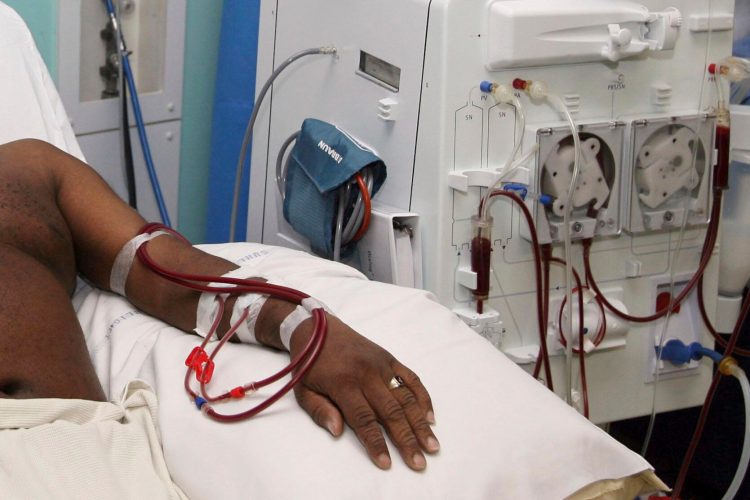

















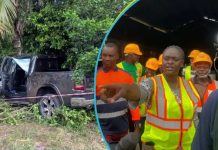
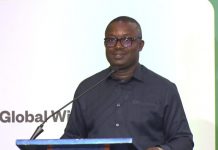

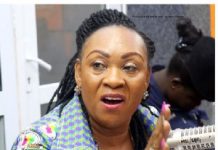

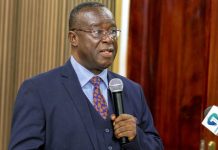
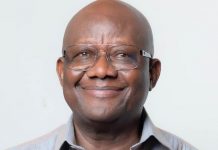
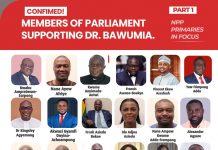




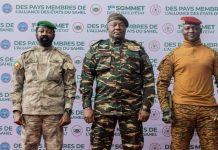




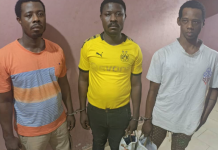

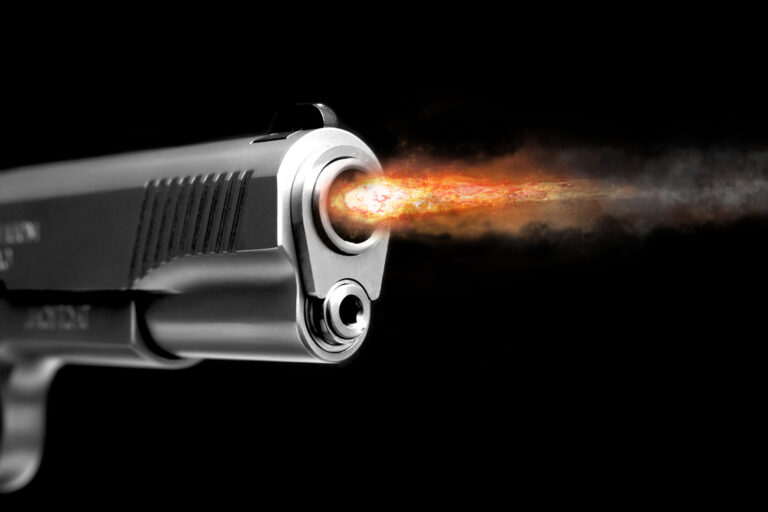

![[FREE FREE MONEY] Predict and Win a Guaranteed GH¢200 From Us EVERY WEEK](https://wordpress.ghanatalksradio.com/wp-content/uploads/2022/02/Predict-and-Win-Final-09-03-2021-218x150.jpg)
![[Predict & Win – 8th/Oct.] WIN A Guaranteed ¢200 From Us This Week](https://wordpress.ghanatalksradio.com/wp-content/uploads/2021/10/maxresdefault-16-218x150.jpg)
![[Predict & Win – 2nd] WIN A Guaranteed ¢200 From Us This Week](https://wordpress.ghanatalksradio.com/wp-content/uploads/2021/09/maxresdefault-50-218x150.jpg)
![[Predict & Win – 25th] WIN A Guaranteed ¢200 From Us This Week](https://wordpress.ghanatalksradio.com/wp-content/uploads/2021/09/maxresdefault-36-218x150.jpg)
![[Predict & Win – 18th] WIN A Guaranteed ¢200 From Us This Week](https://wordpress.ghanatalksradio.com/wp-content/uploads/2021/09/maxresdefault-23-218x150.jpg)
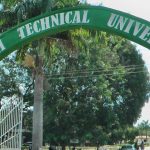
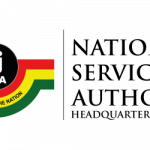
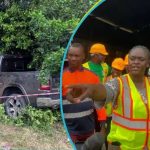





![[National cathedral] See full list of churches that have contributed since 2018](https://wordpress.ghanatalksradio.com/wp-content/uploads/2020/09/Ghana-National-Cathedral-GhanaTalksRadio-100x70.jpg)



